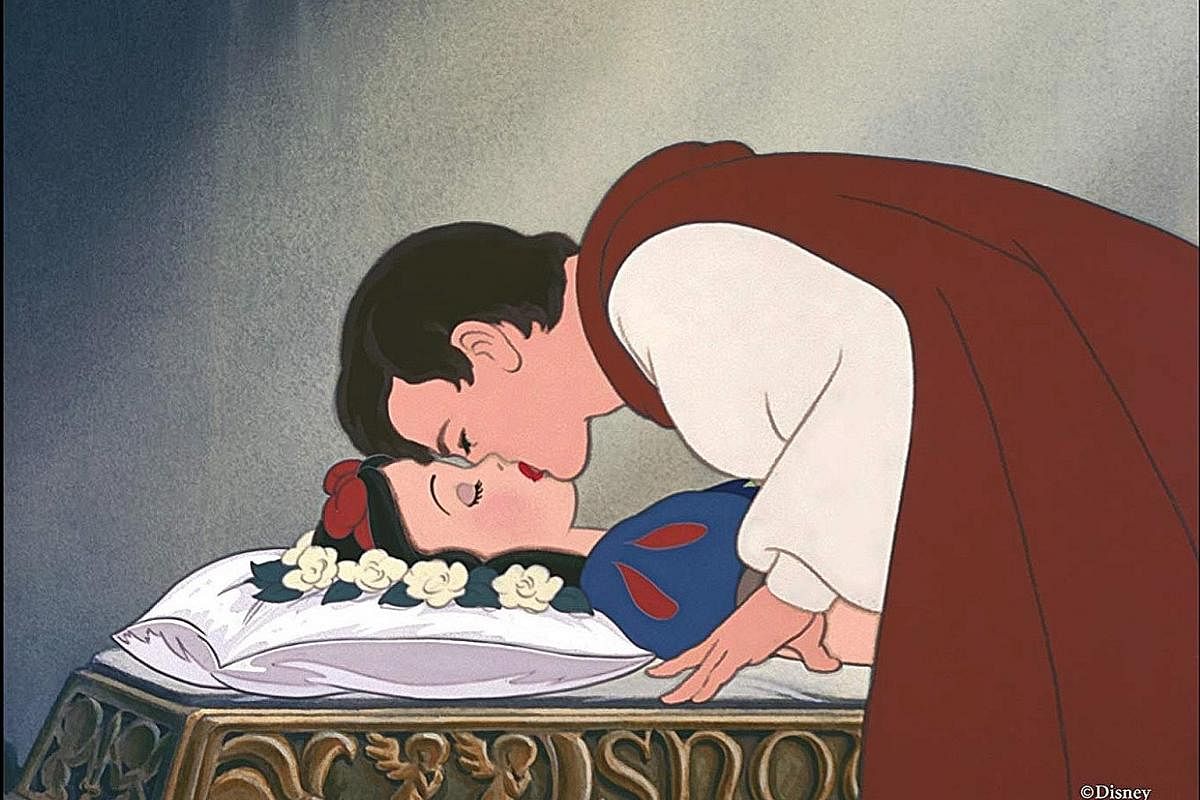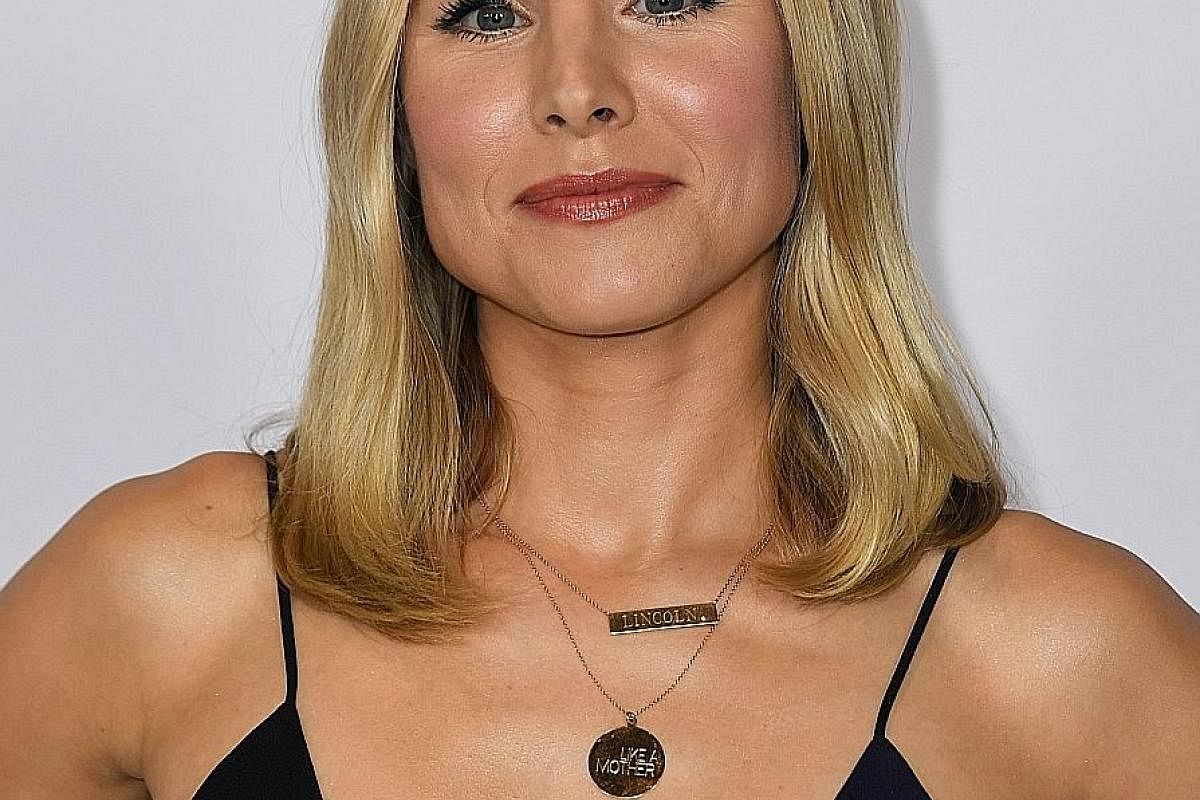Disney film sends wrong messages?
Actress Kristen Bell voices her concerns about Snow White And The Seven Dwarfs fostering wrong ideas about sexual encounters and consent


LOS ANGELES • As sexual assault survivors continue to share their stories, sparking a worldwide #MeToo reckoning, actress Kristen Bell is publicly expressing concern about Snow White and the prince who kissed her without consent.
Bell, who provided the voice of Princess Anna in Disney's animated film Frozen (2013), told Parents magazine that when she reads Snow White to her two young daughters, she poses a question: "Don't you think it's weird that the prince kisses Snow White without her permission? Because you cannot kiss someone if they're sleeping!"
She told the magazine that she also warns her three-and five-year-old daughters not to take apples - or anything else - from strangers.
"Every time we close Snow White I look at my girls and ask, 'Don't you think it's weird that Snow White didn't ask the old witch why she needed to eat the apple? Or where she got the apple?'" Bell told Parents.
"I say, 'I would never take food from a stranger, would you?' And my kids are like, 'No!' And I'm like, 'OK, I'm doing something right.'"
Scholars, activists and other parents have made similar arguments about the Snow White kissing scene - saying that Disney's adaptation of the German fairy tale fosters the wrong ideas about sexual encounters and consent.
In Disney's 1937 film Snow White And The Seven Dwarfs, Prince Charming rushes to see Snow White, only to realise he has interrupted the princess' funeral.
He tells the dwarfs to open her casket so he can say goodbye. Then he leans over and kisses her lips, prompting the princess to wake up from her slumber.
Ms Kazue Muta, a sociology professor at Osaka University in Japan, wrote on Twitter late last year that children's stories such as Snow White promote sexual violence.
"When you think rationally about Snow White and Sleeping Beauty, that tell of a 'princess being woken up by the kiss of a prince', they are describing sexual assault on an unconscious person," she wrote in Japanese, according to Fox News.
"You might think I'm ruining the fantasy of it all, but these stories are promoting sexual violence and I would like everyone to be aware of it."
Earlier this year, Amnesty International Canada posted a rendition of the children's classic titled No Consent = No Fairy Tale, showing Prince Charming kiss an unconscious Snow White before groping the princess between her legs. A nearby owl interrupts the apparent sexual assault, shouting an expletive and throwing a nut at the prince's head.
"No, it's cool," the prince says in the video. "I'm a prince; she's a princess. We were going to - you know. We messed around at the party, so we're just picking up where we left off."
"But is she into it now?" a frog interrupts.
"What? We should have made a contract or something?" the prince replies.
The video then warns viewers: "Don't have sex without mutual consent."
Bell is not the only celebrity mother to express recent concerns about Disney princesses.
Keira Knightley said earlier this month on The Ellen DeGeneres Show that her three-year-old daughter is banned from watching certain children's movies because they send the wrong message.
"Cinderella - banned," said Knightley, who played Robin Hood's daughter in Disney's Princess Of Thieves (2001).
"Because, you know, she waits around for a rich guy to rescue her. Don't. Rescue yourself, obviously."
"And," she added about 1989 animated film The Little Mermaid, "this is the one that I'm quite annoyed about because I really like the film. I mean, the songs are great, but do not give your voice up for a man. Hello."
WASHINGTON POST
Join ST's Telegram channel and get the latest breaking news delivered to you.
A version of this article appeared in the print edition of The Sunday Times on October 28, 2018, with the headline Disney film sends wrong messages?. Subscribe
